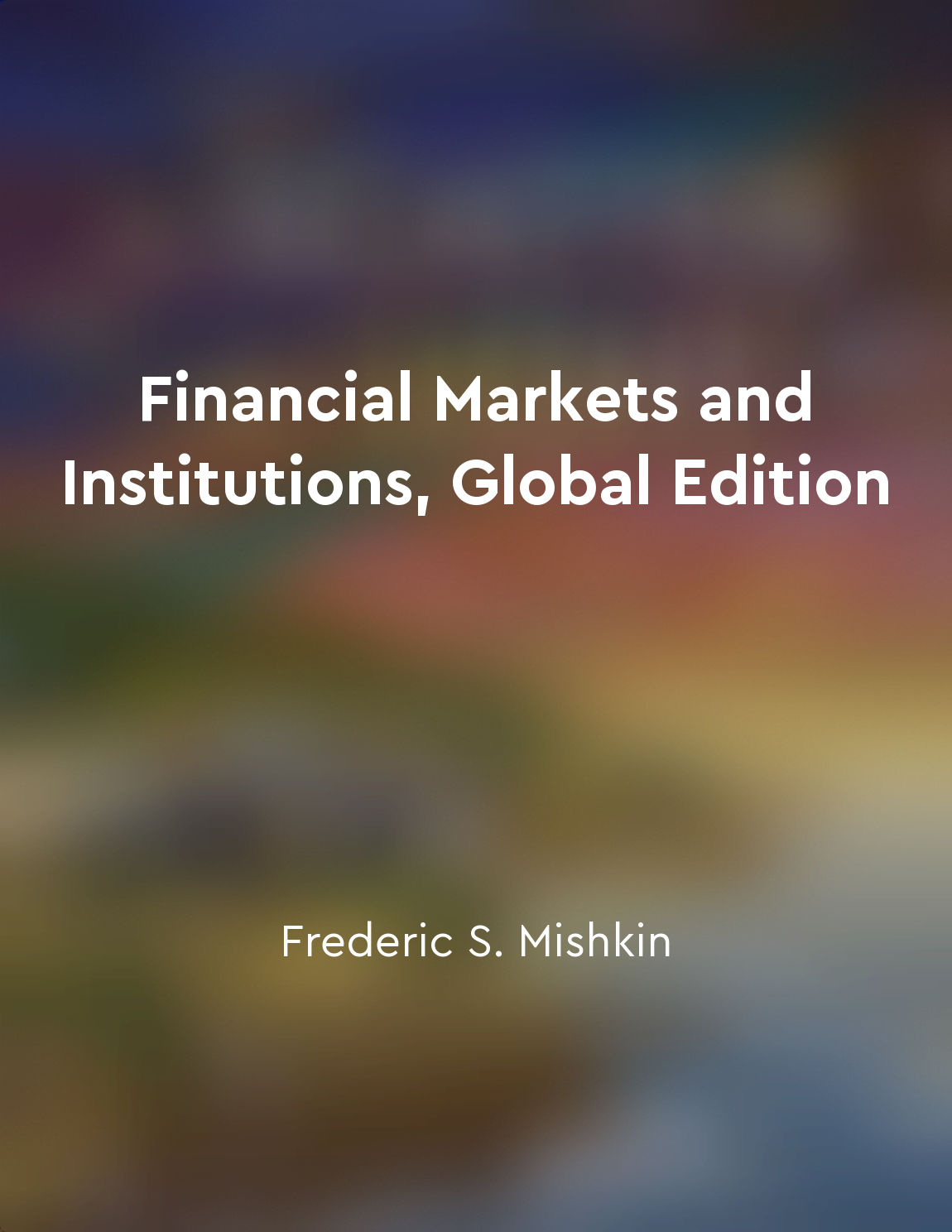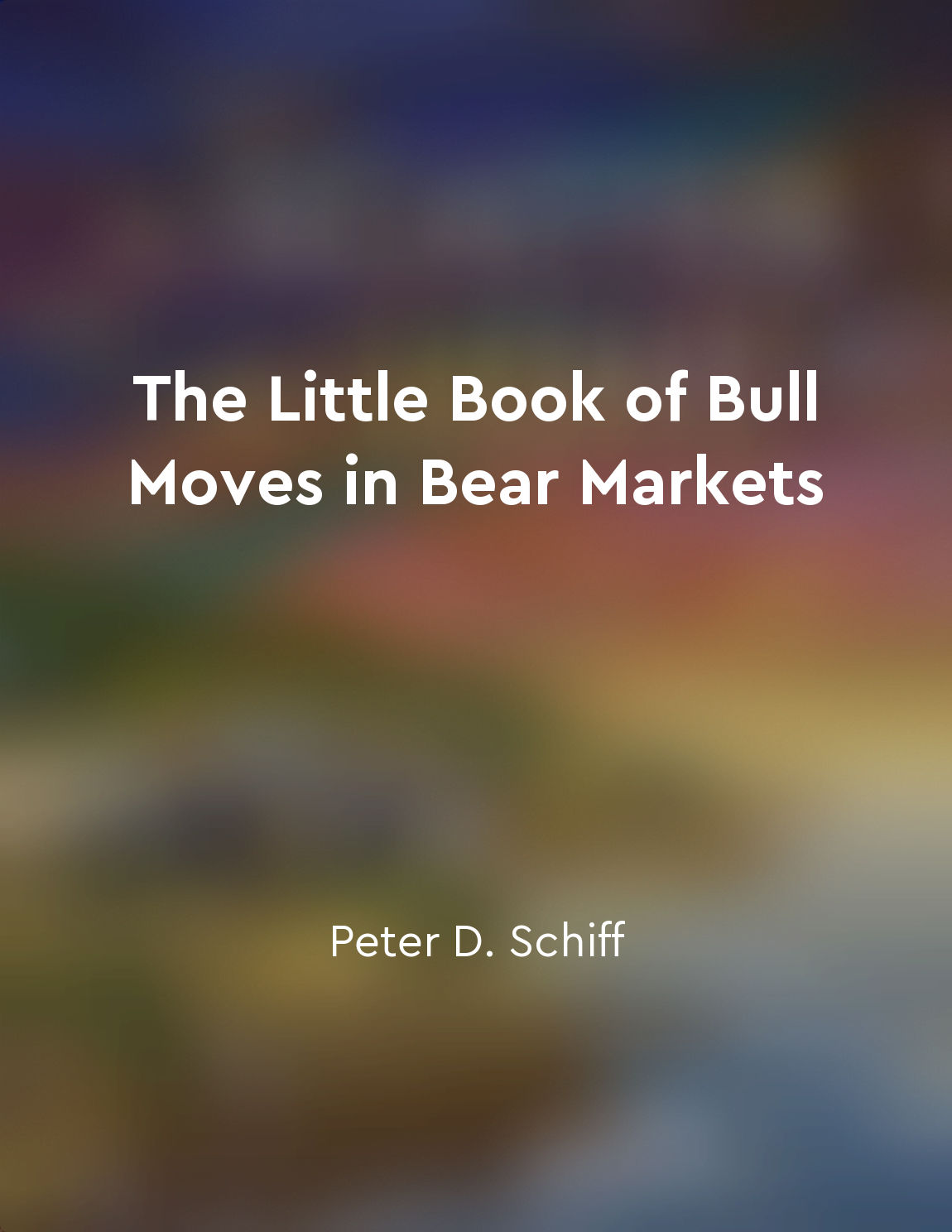Regulatory interventions impact market stability from "summary" of Why Stock Markets Crash by Didier Sornette
Regulatory interventions are intended to control and steer market dynamics in a desirable direction. However, the impact of such interventions on market stability is not always straightforward. One reason for this complexity is that regulatory measures can introduce new uncertainties and distortions into the market. For example, imposing restrictions on certain types of trading activities may lead to unintended consequences, such as increased volatility or reduced liquidity. Moreover, regulatory interventions can also create a false sense of security among market participants. When investors believe that the government or regulatory bodies will step in to prevent a market crash, they may take on excessive risks, assuming that they will be bailed out if things go wrong. In this way, regulatory interventions can actually exacerbate market instability by encouraging risky behavior. Furthermore, the effectiveness of regulatory measures in stabilizing markets is limited by the inherent complexity and unpredictability of financial systems. Market dynamics are influenced by a wide range of factors, including investor psychology, technological innovations, and global economic trends, making it difficult for regulators to anticipate and respond to every potential risk. Ultimately, the relationship between regulatory interventions and market stability is a delicate balance that requires continuous monitoring and adjustment. While regulations can help to mitigate certain risks and protect investors, they can also inadvertently introduce new vulnerabilities and uncertainties into the system. As such, policymakers must remain vigilant and adaptive in their approach to regulating financial markets, recognizing that the impact of their actions on market stability is not always straightforward or predictable.Similar Posts

Mutual funds pool resources from multiple investors for investment purposes
Mutual funds are financial intermediaries that pool resources from multiple investors for investment purposes. These funds offe...
Corporate accountability and responsibility
The notion of holding corporations accountable and responsible for their actions is a critical theme in "Too Big to Fail." Thro...
The staggering amount of wealth lost
The staggering amount of wealth lost during the financial crisis of 2008 is almost incomprehensible. Trillions of dollars disap...
Comparative advantage explains the benefits of trade
Comparative advantage is a fundamental concept in economics that helps us understand why trade is beneficial for all parties in...

Private charity is more effective than government welfare
The idea that private charity is more effective than government welfare is a contentious one. Proponents of government welfare ...

Political risk can impact a firm's operations and financial performance
Political risk is a critical factor that can significantly affect a firm's operations and financial performance. This type of r...

Investors should be wary of excessive government debt
Excessive government debt is a warning sign that investors should not ignore. It is a red flag that indicates potential economi...

The money supply is influenced by various factors
The money supply in an economy is not determined by a single factor but is influenced by a combination of various elements. The...

Social inequality persisted despite overall prosperity
Although the postwar period has seen unprecedented economic growth and prosperity, it is important to acknowledge that this new...

Lack of accountability breeds misconduct
The idea that no one is responsible for anything is a dangerous one. It creates an environment where anything goes, where indiv...
